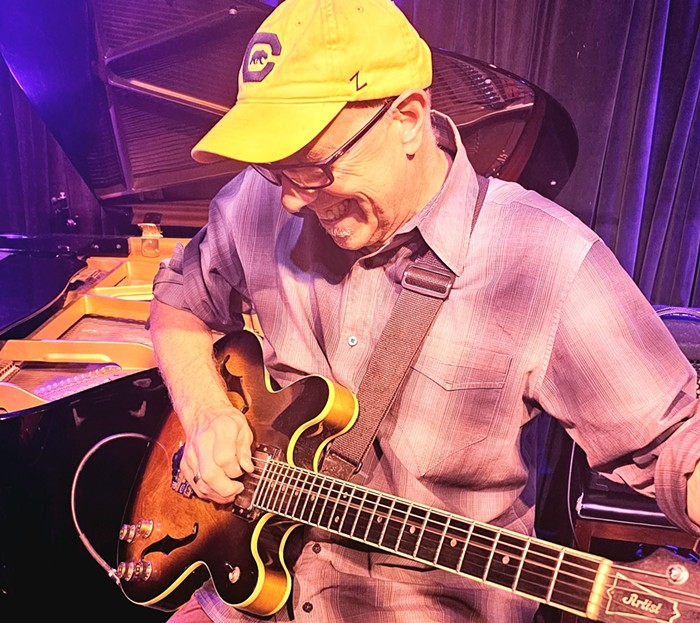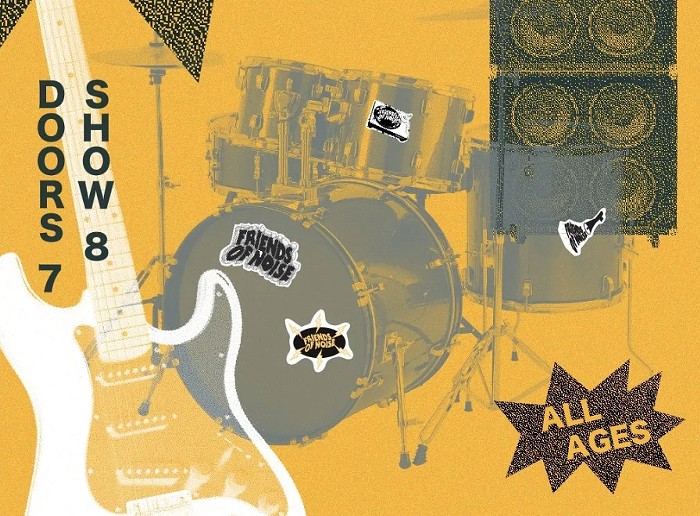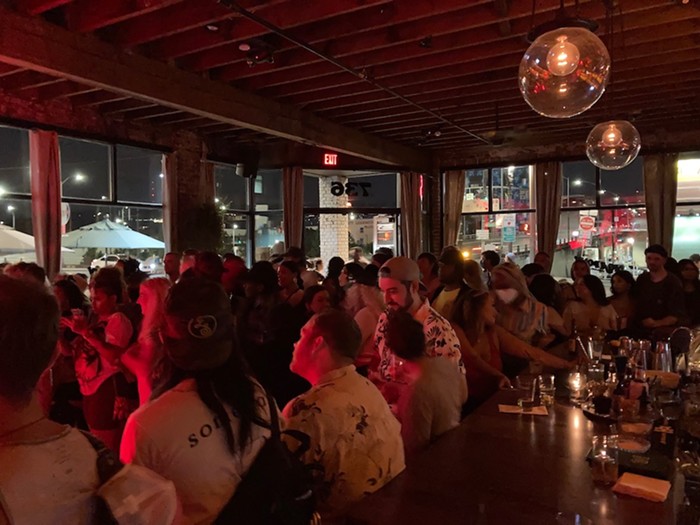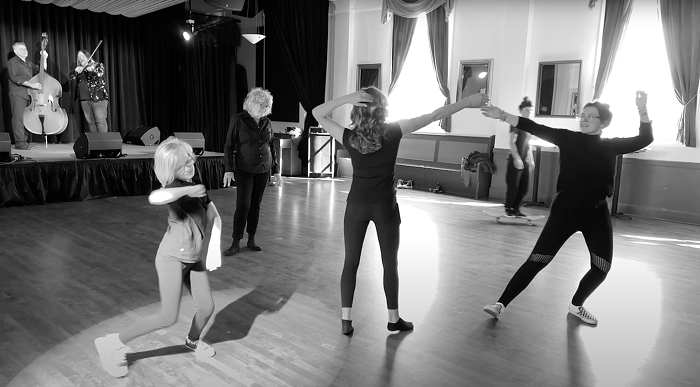IN A RECENT New York Times profile, Ben Sisario writes that folk artist Jeffrey Lewis' "earnest takes on heartbreak with the extended, self-deprecating ego dissections... have earned him a reputation as something like the indie-rock Woody Allen." And while self-referential intellectualism and New York City are indeed their paint and batteries, I find another artistic touchstone with which to grasp Lewis: He could be our generation's Jonathan Richman.
Like Richman, Lewis has the unique ability to turn any stage into a community, commune, restorative campfire, or veritable punk-rock potluck. Both espouse fundamental but oft-overlooked ideals with bedrock honesty, while simultaneously enthralling both children and adults, making each giggle for different reasons. And after a good dose of each, life's tragedy and mystery can appear almost quaint. Appreciate the life you have, they remind us.
Though he has yet to achieve the canonical status of either Richman or Allen, Lewis' devout fanbase and working model is not unlike either. They may not cash in, and they've never compromised. At the same time, there are no easy exits, and occasionally the struggle weighs on Lewis, as it did briefly when we spoke. "We're driving all day to get to the show," he says, aggrieved by lack of promotion on his way to Greensboro, North Carolina. "Maybe somebody could put up a poster at the club saying we're going to be there? Or a little piece in the local paper?" But quickly Lewis' more Allen-like lashing out becomes downright Richman-esque. He finds the positive.
"We've been making a living as a band for many, many years now," Lewis says. "We've lasted longer and made more money and more fans than a lot of my favorite bands ever. So it's all to be taken with a grain of salt."
A Turn in the Dream-Songs, Lewis' recently released sixth album, is his most affecting, lush, and complete. While it's not as headline friendly as his conceptually intriguing album of Crass covers, 12 Crass Songs, Dream-Songs is exponentially more rewarding as a front-to-back listen. "I used to have the idea that a recording was just to document the song, and that live performances ought to be where the song could get adorned with more instruments and kind of develop and evolve," Lewis explains. "But I kind of reversed my thinking over the last bunch of years. I've been fleshing the songs out, sort of working the songs out a little more in the recording process."
Captured over two weeks in a vintage analog studio outside Manchester, England, in February, Dream-Songs is full of subtle but flourishing instrumentation. Like a concert, it lives fully in the moment. Indeed, the sessions found that all-elusive magic. "How Can It Be" is longing, folk-punk perfection. "Time Trades" unearths "Crossroads"-esque deals that avoid the devil. And the seemingly fourth-wall-bursting single "Cult Boyfriend" is on par with Lewis' best, "The Chelsea Hotel Oral Sex Song" and "Williamsburg Will Oldham Horror." In it, Lewis sings: "A cult boyfriend's like a record in a bargain bin/No one knows what it's worth 'til a collector comes in." In our conversation, Lewis refuses to draw lines between the cult works he references and his own career, insisting it's about relationships. But the semblance remains. And really, there is no other way.
"We can take it," Lewis says, as part of a band that's got to scratch out its life. "We've been taking it and we'll keep on taking it."



















